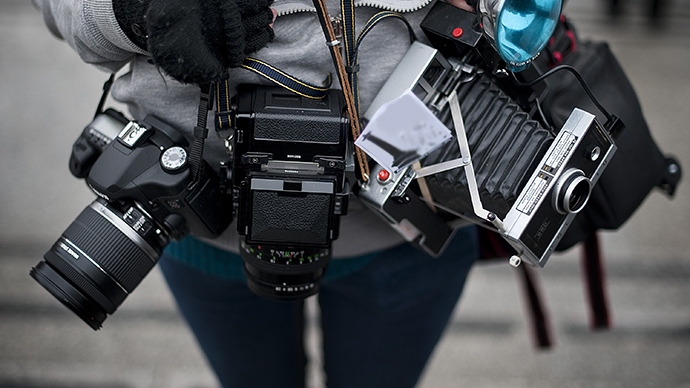One week after a federal appeals court ruled that citizens possess First Amendment rights to film cops, a police department in New Hampshire agreed to settle with a woman who was arrested on wiretapping charges.
In 2010, Carla Gericke was arrested on wiretapping charges for
filming her friend being pulled over by the Weare Police during a
traffic stop. When ordered by police to turn over her camera, she
refused, and was duly charged for disobeying a police officer,
obstructing a government official, and "unlawful interception
of oral communications."
According to Massachusetts law, citizens are permitted to record
police officers, but only if the cops have been informed that a
recording is taking place.
Although she was never brought to trial, Gericke sued, alleging
that her arrest amounted to “retaliatory prosecution in
breach of her constitutional rights.”
The Weare police department settled the lawsuit, agreeing to pay
Gericke $57,000. Meanwhile, her attorney expressed confidence
that the landmark case would make police retaliation against
videographers “a thing of the past.”
"Unfortunately, sometimes, the only thing that changes
entrenched behaviors is if it becomes too costly to continue
those behaviors," attorney Seth Hipple said. “This
settlement helps to make it clear that government agencies that
choose to retaliate against videographers will pay for their
retaliation in dollars and cents. We are confident that this
settlement will help to make arrests of videographers a thing of
the past."
Gericke’s case was permitted to proceed after the First US
Circuit Court of Appeals ruled she was “exercising a clearly established
First Amendment right when she attempted to film the traffic stop
in the absence of a police order to stop filming or leave the
area."
READ MORE: Filming police as a constitutional right

"It is clearly established in this circuit that police
officers cannot, consistently with the Constitution, prosecute
citizens for violating wiretapping laws when they peacefully
record a police officer performing his or her official duties in
a public area," the appeals court said.
In an ironic footnote to the case, Gericke never actually
succeeded in videoing her friend’s run-in with the police as her
camera failed to work. Nevertheless, the court still ruled the
video malfunction “irrelevant” as it ruled in her favor.
"We agree that Gericke's First Amendment right does not
depend on whether her attempt to videotape was frustrated by a
technical malfunction. There is no dispute that she took out the
camera in order to record the traffic stop."

